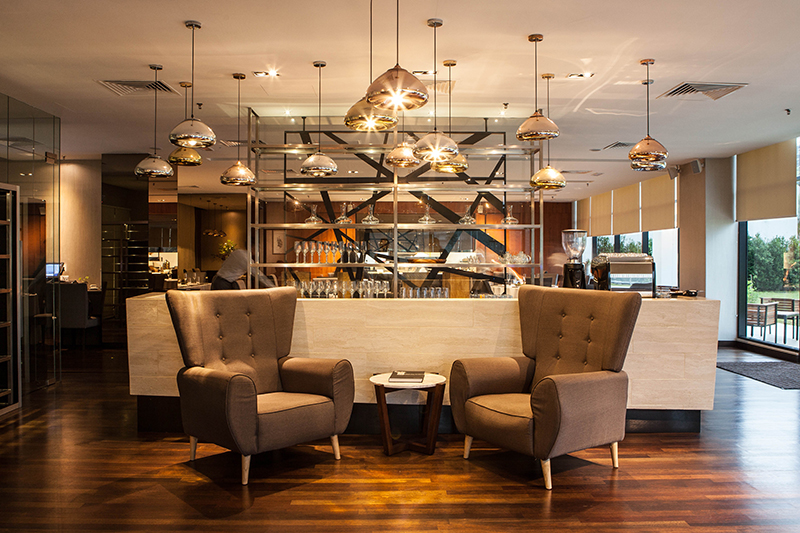
When it comes to a fine dining, one would not expect that one of the better fine dining restaurants in Kuala Lumpur would be located at a culinary academy. Dewakan serves modern Malaysian cuisine, which emphasises the use of local produce, using local flavours. The idea here is simple, to use the best of what can be found, and to use it to its best.
As you enter the restaurant, you are greeted by the sitting area. Opposite of the waiting area is where patrons are greeted sits the large dining area, with its open kitchen concept right at the back of the dining tables. This was done so to enable people to get a closer to feel to where the food is made before serving.
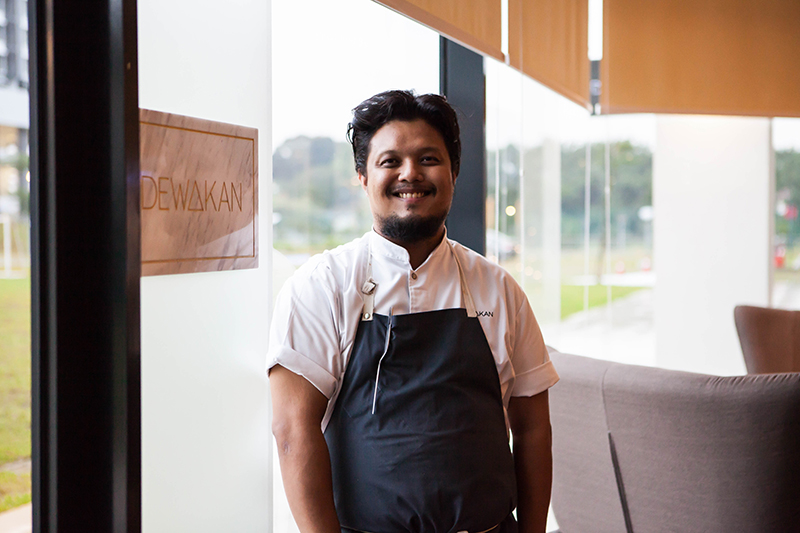
Dewakan is helmed by Darren Teoh, a molecular gastronomy lecturer at Kolej Damansara Utama (KDU), and former apprentice at Noma, Copenhagen. Teoh’s culinary style emphasises on local produce indigenous to the region, as he pays homage to the Malaysian cultural heritage by reinterpreting traditional flavours in a modern context. When asked what he thinks about fine dining in Malaysia, he remarked: –
“The definition of fine dining comes from the patrons of the restaurant. When people want to come and be part of something more sophisticated, they call it fine dining. Most of the time, Malaysians do not have a solid point of reference as there is very little of it (fine dining), even in the past 10 years.” — Darren Teoh, Executive Chef of Dewakan.
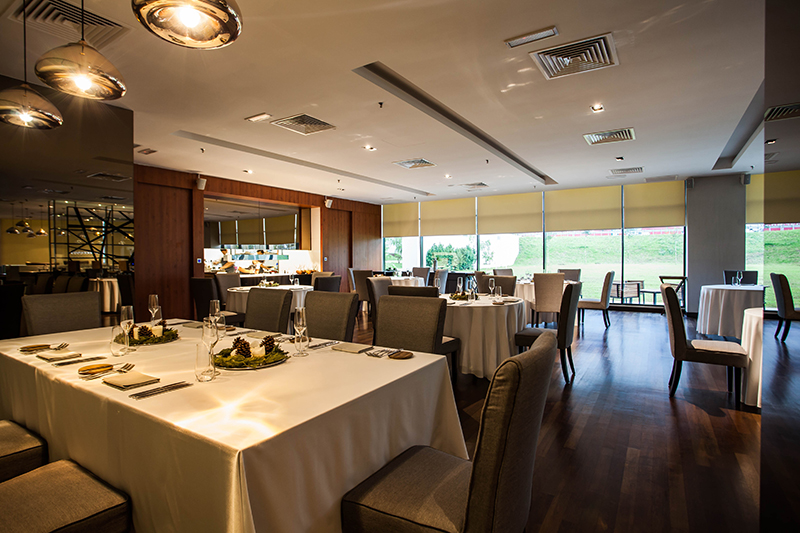
The Dining
The menu at Dewakan usually consists of a smaller menu, which has about 10 courses, or a larger one, that caters to about 16 courses. Each menu is thoughtfully put together as a culinary journey, ensuring each patron that they leave with a great experience. Here, we sample 3 of their standout courses.
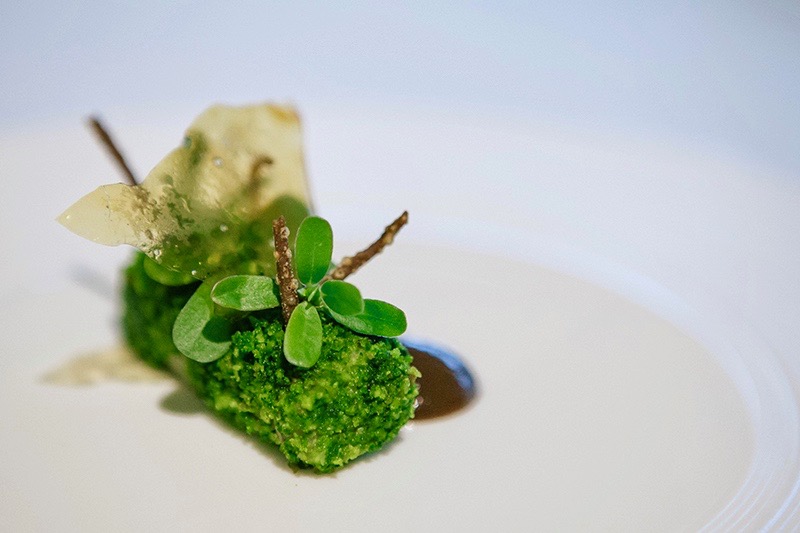
The first course, a vegetable course, was the Braised Aubergine, consisting of aubergine braised in a mushroom stock, covered in jackfruit seeds, served with black bean sauce and a garlic emulsion. The aubergine was tender, with very an almost too light note from the mushroom stock. The jackfruit seeds as green crumbs gave it the dish some nice texture, with the black bean sauce (a traditional pairing for Chinese aubergine cooking) adding a stronger flavoured punch when had together. The pungent garlic emulsion contrasted the sweet black bean sauce.
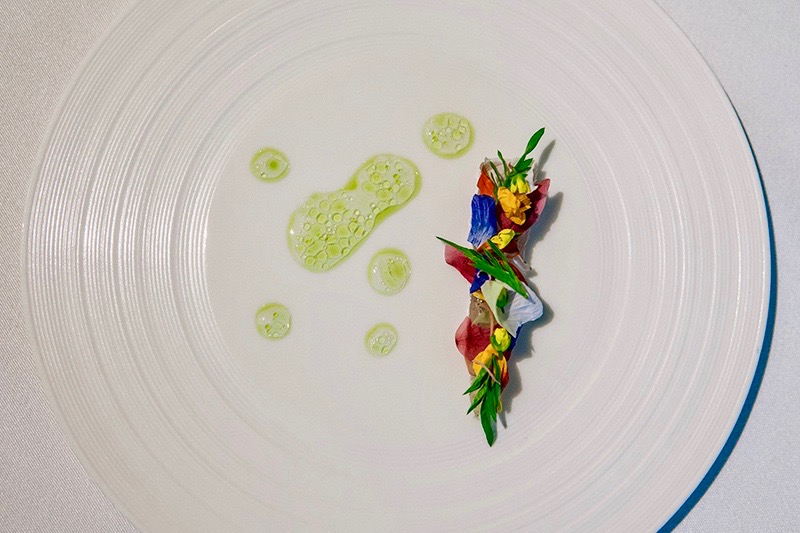
The second course, a fish course, was the Blue Mackerel, consisting of a cured local mackerel known as tenggiri, served with ulam raja, pomelo, clitoria and nasturtiums. This dish had the elements of a ceviche, with the bitter florals contrasting the savoury mackerel. The lime leaf dressing zested up the salty dish and gave it some life with its subtle but not too sour pungency. The pomelo, with its bittersweet pulp made the dish interesting.
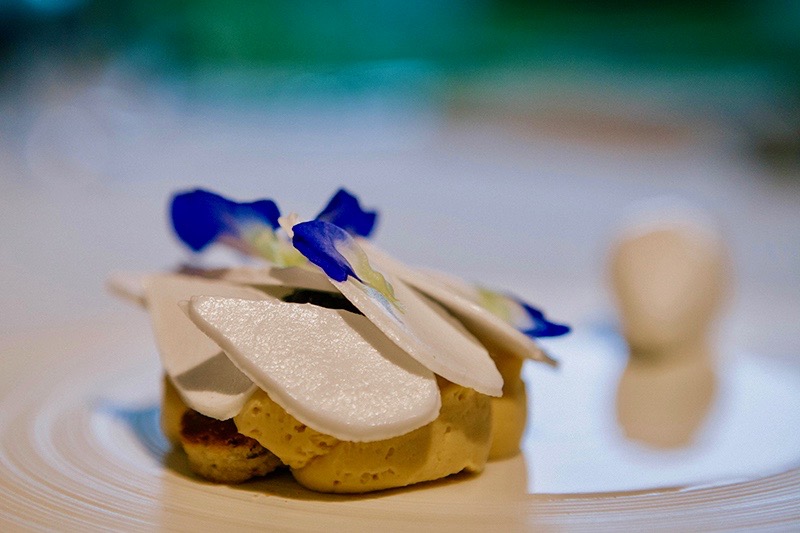
The third course, a dessert course, was the Gula Melaka Marquise, consisting of petit gula Melaka marquise, a type of crispy and spongy cake, beautifully layered with meringue leaves, clitoria blossoms and a glutinous rice ice cream. The marquise itself was brilliantly flavoured, with a nice sweet tang from the gula Melaka. The meringue added a nice touch of sweet sourness. The glutinous rice ice cream however, could have been a little stronger as the flavour was quite subtle. A stronger flavour would have contrasted the gula Melaka elements better.
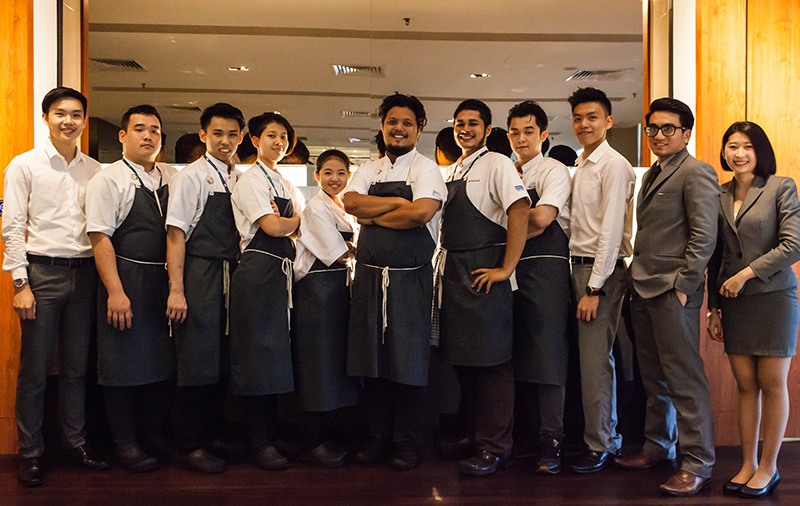
The Dewakan Experience
There are very few restaurants that are able to properly pay homage to the rich culture that is Malaysia and Dewakan has done exactly that. By utilising modern techniques such as molecular gastronomy, Teoh manages to do what many restaurant cannot, that is to properly elevate the Malaysian dining experience. Teoh goes on to say: –
“The cornerstone of what we do is to emphasise the use of local herbs and vegetation. We use as much organic produce as we can, especially those which are indigenous to the area. This is what we call, for the lack of a better term, Modern Malaysian cuisine. We don’t produce half-hearted products. Every dish is completely conceptualised before serving.”
For that genuine dining experience of what this ethnic diversity of a melting pot that is Malaysia, look no further.
Certain excerpts of this article appeared in The Finer Things in Life as featured on My Malaysia.
Lower Ground Floor
KDU University College,
Utropolis Glenmarie,
Jalan Kontraktor U1/14,
Seksyen U1,
40150 Shah Alam,
Selangor.
+603 5565 0767
Opening Hours:
6.30 pm to 10.00 pm
Closed on Sundays.
| PHOTOGRAPHY BY: TEOH ENG HOOI | WEBSITE: DEWAKAN RESTAURANT |